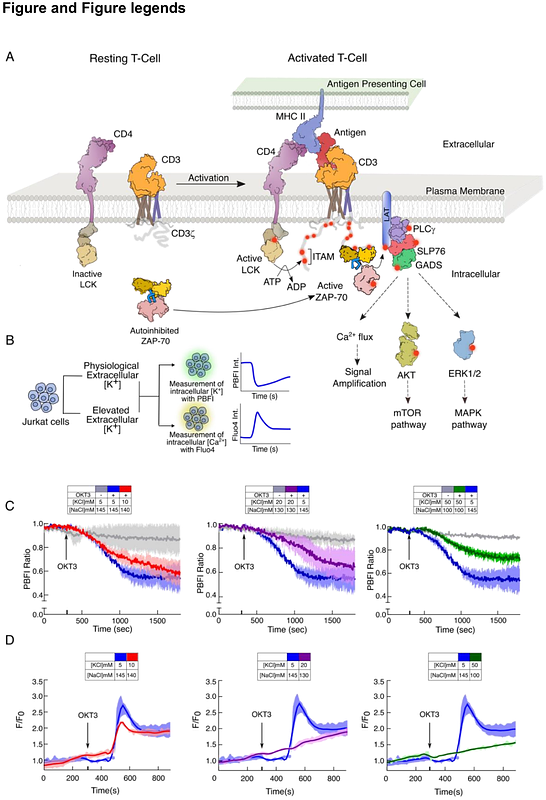Molecular Basis of Ionic Suppression of ZAP-70 Dependent T Cell Receptor Activation

Molecular Basis of Ionic Suppression of ZAP-70 Dependent T Cell Receptor Activation
Das, R.; Mallick, A. I.; Roy, S.; SenGupta, S.; Gangopadhyay, K.; Das, J.; Sinha, A.; Majumder, S.; Das, P. K.; Chakraborty, M. P.; Mondal, S.; Sinha, B.
AbstractIonic imbalance in the tumor microenvironment alters the tumor-infiltrating T lymphocyte function. High extracellular K+ suppresses T cell function by negatively regulating T cell receptor (TCR) signaling. In contrast, elevated extracellular Na+ enhances T cell effector function by boosting the phosphorylation of TCR signaling modules. Here, we presented a mechanism explaining how the two monovalent cations differently regulate TCR function. At rest, high intracellular K+ uncouples allosteric recruitment of ZAP-70, a key signaling module, to the TCR complex. The formation of antigen TCR complex induces K+ efflux, causing spontaneous recruitment of ZAP-70 to the TCR. Increasing extracellular K+ perturbs K+ efflux and slows ZAP-70 recruitment to the TCR complex, even upon antigen binding. This leads to defects in T cell development and arthritis-like symptoms in juvenile mice. We conclude that K+ dynamics is integral to T cell ligand discrimination and fundamental to turning off the signaling during T cell quiescence.